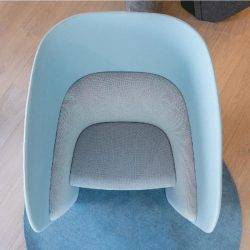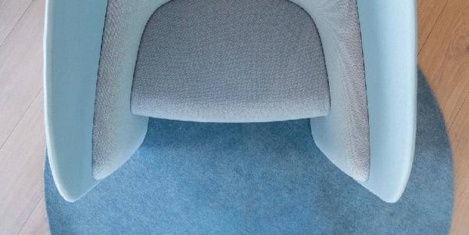November 27, 2018
New interior design collective launches in Manchester
 Mix Design Collective in association with Bruntwood, part of Mix Week Manchester, is a brand-new workplace design event that will celebrate the best national and international design products. Created by Mix Group, home to Manchester Headquartered, award winning Mix Interiors magazine and Out There Events, Mix Design Collective will see themed spaces, curated by leading architects and designers including Gensler, Hassell, Faulkner Brown Architects, Incognito, Michael Laird Architects and tp bennett. Heart Space, Health & Wellbeing, Engage, Smart & Connected, New Analogue and Escape will showcase a range of workplace settings incorporating cutting edge design ideas and products. Mix Design Collective is a must attend event and free of charge for those involved in architecture, design, commercial property and construction. Visitors will have access to the design leaders of the future whilst being immersed into the six live working zones.
Mix Design Collective in association with Bruntwood, part of Mix Week Manchester, is a brand-new workplace design event that will celebrate the best national and international design products. Created by Mix Group, home to Manchester Headquartered, award winning Mix Interiors magazine and Out There Events, Mix Design Collective will see themed spaces, curated by leading architects and designers including Gensler, Hassell, Faulkner Brown Architects, Incognito, Michael Laird Architects and tp bennett. Heart Space, Health & Wellbeing, Engage, Smart & Connected, New Analogue and Escape will showcase a range of workplace settings incorporating cutting edge design ideas and products. Mix Design Collective is a must attend event and free of charge for those involved in architecture, design, commercial property and construction. Visitors will have access to the design leaders of the future whilst being immersed into the six live working zones.












 The vast majority (97 percent) of office workers in UK feel frustrated by their workplace environments, with many feeling the need to escape office life as a result. A new report from Staples has discovered that one-in-five (22 percent) end up browsing LinkedIn job ads for something better when they’re frustrated. As a result, job-hopping is prolific, with workers now predicted to have 11.7 jobs between the ages of 18 and 48. The expectation that the grass must be greener elsewhere is leaving most thinking about switching jobs. However, when they do end up jumping ship, many just experience a short-term fix. According to the study, a third (37 percent) get frustrated in their new office before the end of their first six months. The majority of office workers say they seek fulfilment (89 percent) at work, and for most (77 percent), the quality of their office workspace is a contributing factor in how fulfilled they feel.
The vast majority (97 percent) of office workers in UK feel frustrated by their workplace environments, with many feeling the need to escape office life as a result. A new report from Staples has discovered that one-in-five (22 percent) end up browsing LinkedIn job ads for something better when they’re frustrated. As a result, job-hopping is prolific, with workers now predicted to have 11.7 jobs between the ages of 18 and 48. The expectation that the grass must be greener elsewhere is leaving most thinking about switching jobs. However, when they do end up jumping ship, many just experience a short-term fix. According to the study, a third (37 percent) get frustrated in their new office before the end of their first six months. The majority of office workers say they seek fulfilment (89 percent) at work, and for most (77 percent), the quality of their office workspace is a contributing factor in how fulfilled they feel.


 A new survey of professional, mainly management-level women has revealed a lack of support for maternity returners by employers. According to the survey by working parents website
A new survey of professional, mainly management-level women has revealed a lack of support for maternity returners by employers. According to the survey by working parents website 

















November 5, 2018
An intersectional approach to trends in workplace design at Orgatec 2018
by Mark Eltringham • Comment, Workplace design
More →